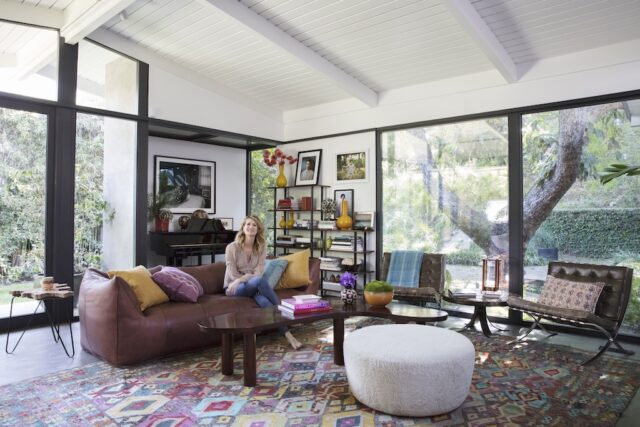
CRISTINA CUOMO: You’re filming with Noah Baumbach. You won the Academy Award for Best Supporting Actress for your role in his Marriage Story. What does it feel like to be working with him again?
LAURA DERN: It feels great. We’re just finding our characters, which is always such an interesting and delicate process. We’re in the final stages of hair and makeup, fittings and working with the filmmaker on what he wants.
CC: Let’s talk about Palm Royale. What a cast. Tell me what drew you to this series.
LD: About five years ago, my producing partner Jayme Lemons and I were given the book by our other producer, Katie O’Connell Marsh, and we loved this world that is deeply relatable, where positions of power meet alternative lifestyles. The show takes place in Palm Beach in the late 1960s, that moment where a group of women are oblivious to what’s happening around them while clamoring to be seen and valued by being “a member of the club.” I took a long, exciting look at the character of Maxine, whom I had fallen in love with, and felt there was no one more amazing, hilarious and inventive than Kristen Wiig to play the part. I asked if Kristen would be a producer as well. It was really about building a world and building out this show, which was very unique to anything else out there, and then figuring out a way to subversively say something within that world with the character of Linda that I get to play.
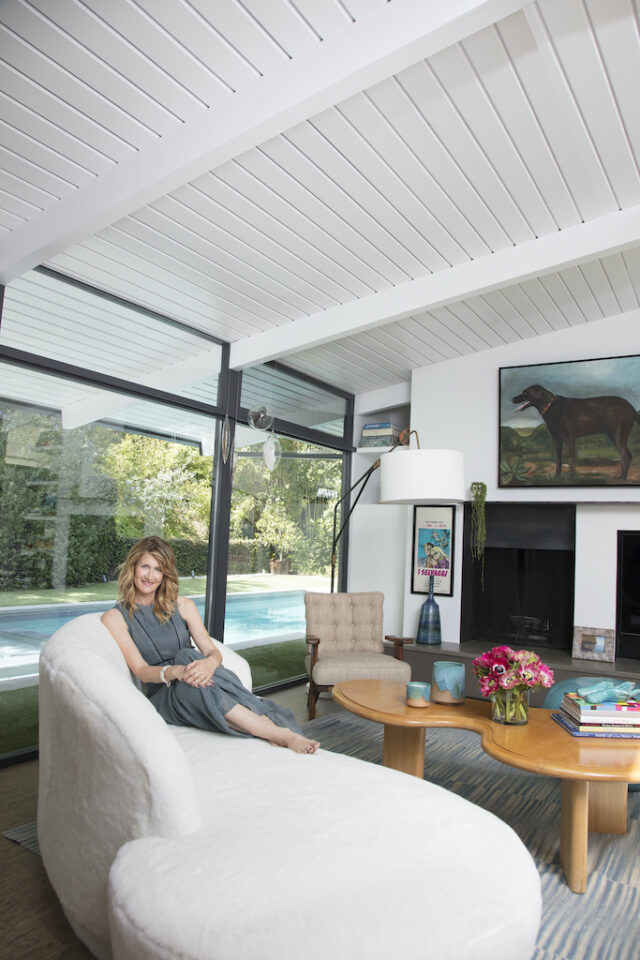
CC: That’s a poignant time for feminism, the late ’60s, and Linda has got this great blend of bohemian strength, like you do. She’s so strong in the beginning, but her vulnerability is revealed. I watched the whole series and your character was definitely my favorite, the one we all relate to. How was it playing a period feminist?
LD: What I loved about it is that it’s this rather heightened comedy, and so you can find the fun in it. Talking to this group of women about how if we continue to fight, our daughters will never have to fight for their right to choose, etc. To be in this fever pitch with how absurd it is that we’re not only still here, we’re back here, is just an amazing thing to play around with. I loved the idea that on the outside of this club would be these relationships, as she has with Virginia [Amber Chardae Robinson] and with Ricky Martin’s character, Robert Diaz, who is also fighting for his sense of belonging. It was a really beautiful, fun role that Abe [Sylvia] invented. While inside the bubble, you can get caught up in the surface fun of what these women are clamoring for. Almost halfway through it, you are like: Wait a minute, whose side am I on? What’s really important? How did I get caught up with these women? Linda is a great counter to that.
CC: The operative word you use is club. These women just want to be part of a community and they’re finding their tribe, they’re finding their way through each other. It’s like a feminine circle. Even though they all sort of hate each other, they all love each other. It’s a great story.
LD: Yeah, what do we do? Also, what does one do when they have opportunity, wealth, connection? It’s interesting to consider, and then certainly if there’s a subversive plea within it, it’s thinking about opportunities the few have to save the planet. Just cut right to climate as a primary focus. This is it—we’ve got the next five years for industry leaders to actually make a difference. Certainly consumers have a voice about where they’re going to spend their money, whom they’re going to align with. Few industries will change it, or not. And so it’s amazing when you get into these pockets of great wealth and advantage, as you see in Palm Beach and other neighborhoods. You see people who are radically progressive and doing the deepest work on the planet to take care of others and to save our home, and then right across the street you see the opposite. It’s a fascinating dichotomy, because when people focus, as you said, on the hunger to belong they can lose sight real quick about wanting to matter. Not being popular is terrifying for a lot of people, and many of these female characters have it. Many women want to grow out of the early middle school trauma of “mean girls,” but many of us are still triggered by it, still not wanting to rock the apple cart and all of that.
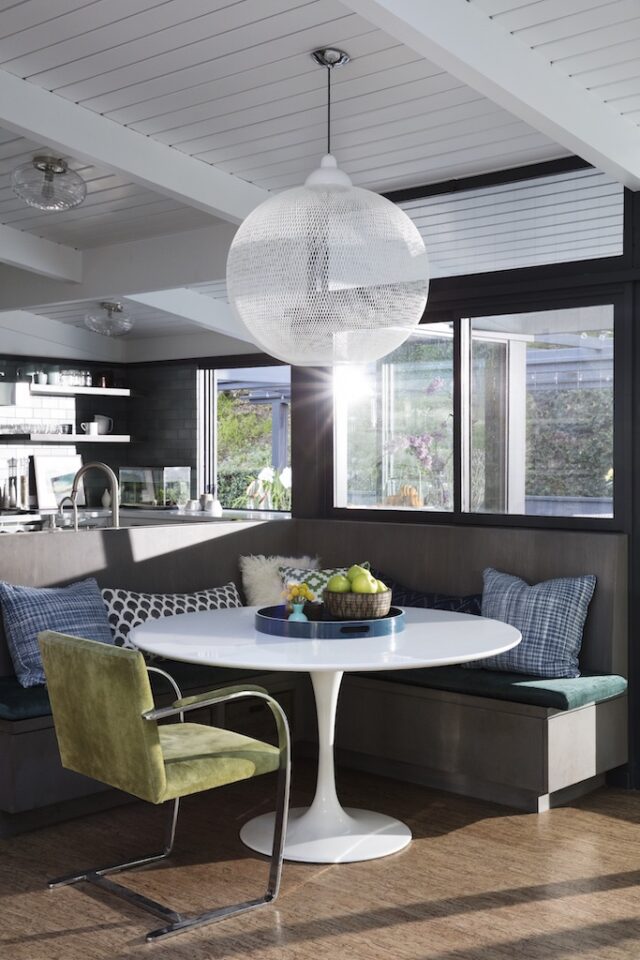
CC: Everybody is so fragile underneath it all. It’s a beautiful scene with your dad, Bruce. That must be very fulfilling to act with a parent.
LD: It’s so amazing. I’ve had the incredible blessing of working with my mom [Diane Ladd] several times, since I was in my early 20s. There’s an unparalleled intimacy to looking in the eyes of a person who has known you your entire life. It’s part of the dynamic: the good and the challenging. And so to finally have that experience with my dad—we’ve been talking about a film which has been in development for a long time and longed to work together. Finally, I said, You know what, Dad, Abe and Tate Taylor [director] called, saying maybe this is an opportunity to finally get to work with your father. Is this a bird in the hand? He was so game, and he’s such a brilliant artist who shows up and everything is the truth. It was a dream to be with him.
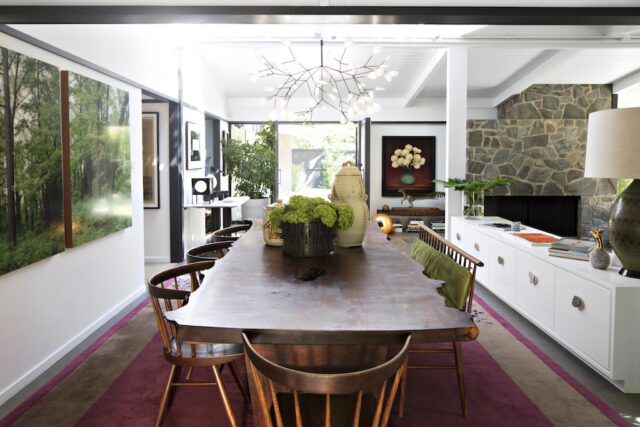
CC: Maybe that thread will continue, if you and your daughter get to do some project together one day. I know that she’s a budding actress.
LD: You never know. It would be amazing. And my son is an amazing musician. Maybe our paths will cross creatively; maybe he’ll score something one day. It is a beautiful thing to think about getting to work with your loved ones. There’s a label for it these days, and it’s become grossly overused. I won’t even use the word, but all I can say is every great artisan or workman or butcher or seamstress or sound man that I have ever worked with has introduced me to their son or their nephew or their daughter and said they’re working with me now. Working alongside parents is such an amazing experience, and complicated and delicious and funny and all those things. So, I’m lucky to have had those experiences.
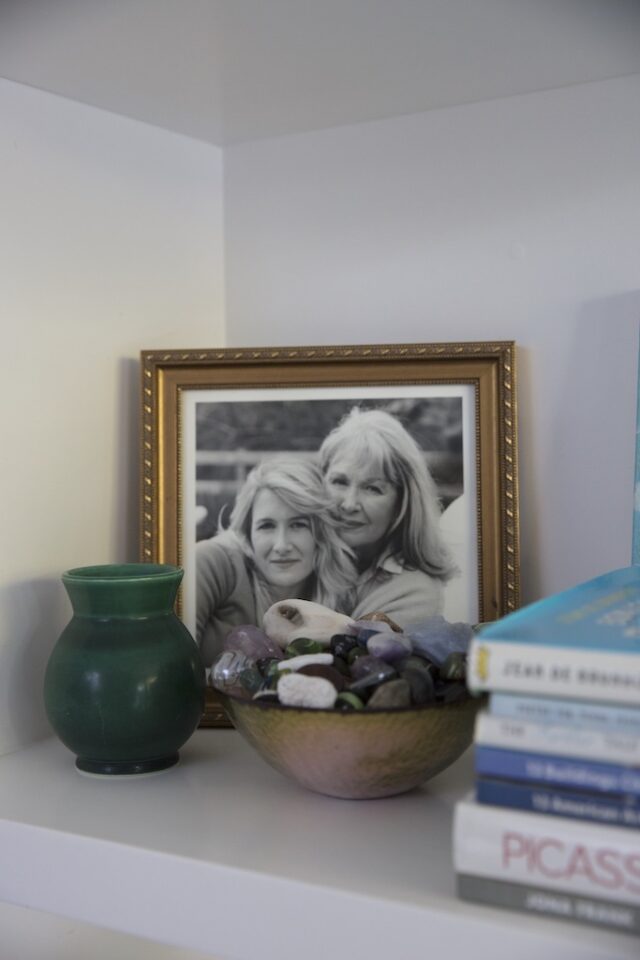
CC: One writer I read referred to all things Laura Dern as the “Dernaissance,” which I thought was so beautiful. You’ve played so many characters, from a paleobotanist in Jurassic Park to a prickly Monterey, California, mom in Big Little Lies. Some likable, some not as likable. You make your characters so relatable.
LD: I’m interested in worlds that I haven’t been involved in—to play Renata in Big Little Lies, to know what it’s like to be a woman in Big Tech was really interesting. To get to know women who live in that world was such an eye-opener.
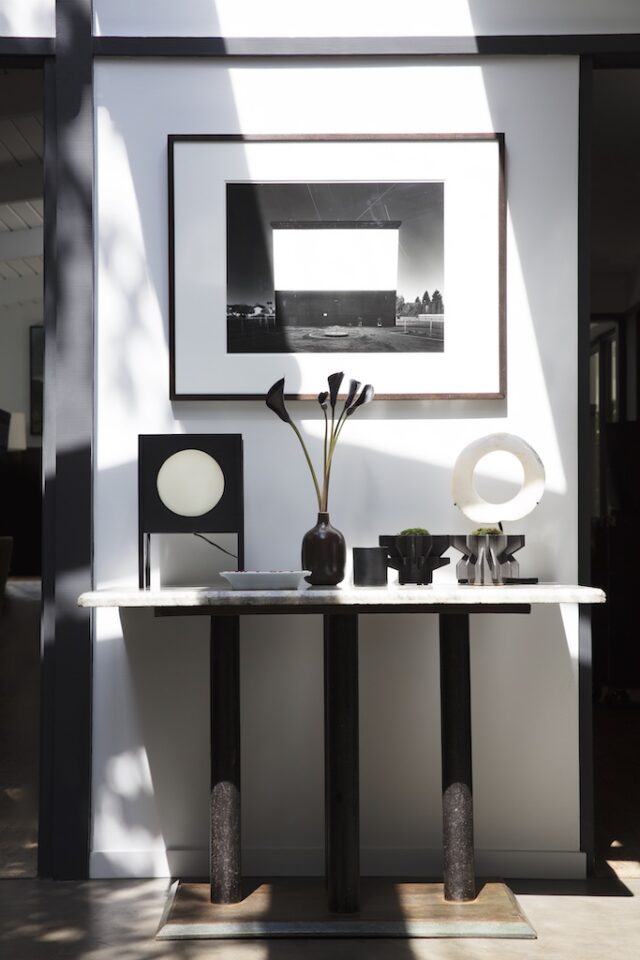
CC: A series allows for a character’s evolution, whereas in film there’s a very concentrated amount of time. What’s your preferred medium—television, film or even stage?
LD: Film requires a subtlety only offered to the job of being a human being. We never know what we’re feeling from moment to moment. We don’t know what the outcome is going to be. We’d like to be hopeful, but all kinds of things get in our way. In a limited series, there is a lot more time to go deeper, which is so fun. And so it takes such great and smart writing, like I had with the genius of Mike White on Enlightened and like we have with Abe on Palm Royale. Abe knows exactly the tone of the show, just like Mike knew the tone of Enlightened, which is a very risky and rare tone. Some people say they prefer theater, because new things happen on stage every day.
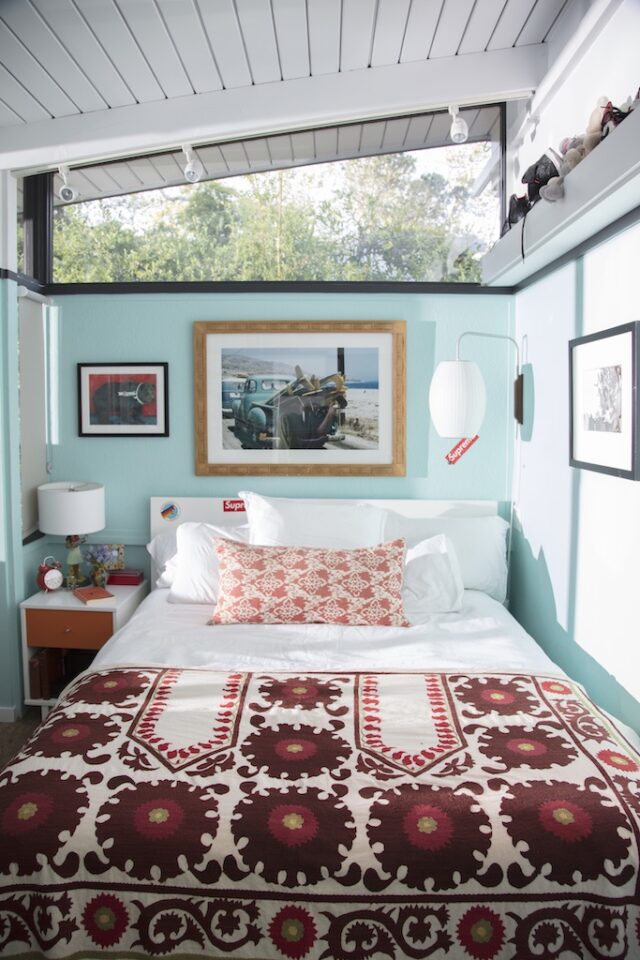
CC: As an Oscar winner for Marriage Story, would you say the character of the divorce lawyer was one of the most important ones you played because of the recognition you received, because of the way it resonated with people so much, or both?
LD: It resonated with me because of Noah Baumbach’s attempt to crack open how much we lose in divorce. Two people have been best friends, and suddenly a machine shows up and says, “We’re going to help you get through this.” That machine can be excruciating. We worked very closely with Noah for a good year as he was writing. I’m back with him now in a film. I just want to make movies with him forever, just like I’ll always show up for David Lynch whatever he asks me to do. To have accolades come with a filmmaker you love for a part you really care about, with a team of people who made it so amazing, and not to mention his life partner is your other director, and you made the two movies back-to-back. I spent a year with Greta [Gerwig] and Noah. It was like one long movie. We were all just together, and then we were together promoting Marriage Story and Little Women.
CC: I’m going to pivot into being a parent, since Mother’s Day is coming up. What has been the most rewarding experience of this journey for you?
LD: Knowing the two most incredible human beings I’ve ever known in my life, and that they happen to be my kids. I don’t know if every parent feels that.
CC: I do.
LD: Right. No two people make me laugh harder. No two people do I want to see the world with. I’m here in London and I’m calling like, oh, my god, I had the lemon sole you love. They’re intrinsically connected to you in a way that is like nothing else you’ve ever known. It’s the best experience anyone could ever be blessed to have. The other part is to be in a primary relationship as a grown-up where getting it right matters more than ever. It’s the best opportunity of becoming a grown-up we could ever ask for, because we want so deeply to be that for our kids.
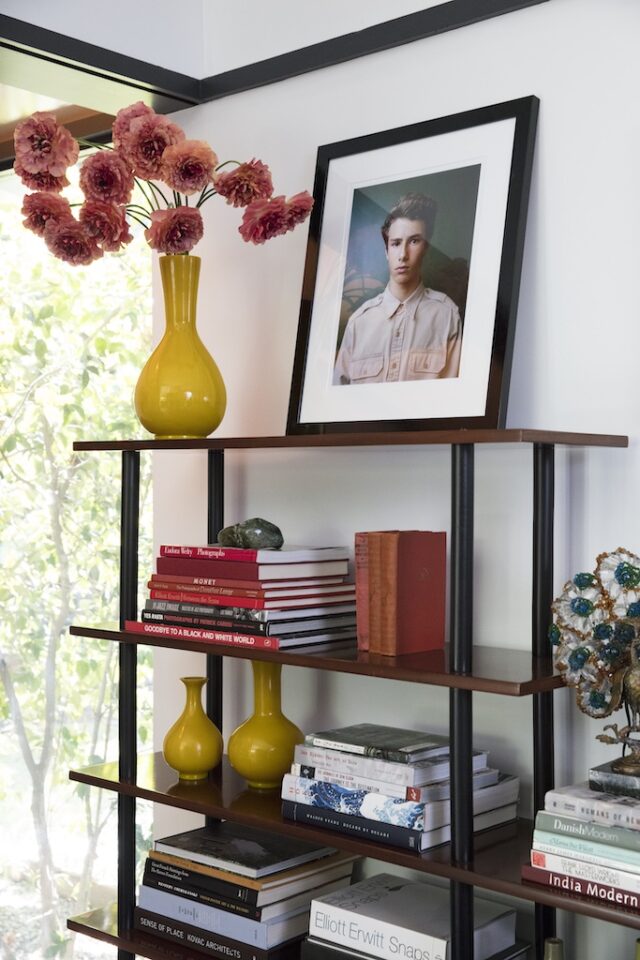
CC: That’s so true. It is the ultimate form of self-reflection. It’s our opportunity to do and be our best.
LD: Especially when they’re little and they catch everything. You’re on a phone call and your 6-year-old is looking at you like, What’s wrong with you? I look back and she says, “Mom, you’re standing in your kitchen, and you just told that person you were late in traffic. Why did you lie?” And there’s a part of you that in your past might be in that space of, “Oh no, you misunderstood.” You don’t want to lie to your child, but you’re just completely having to be confronted with accountability. It’s an amazing thing.
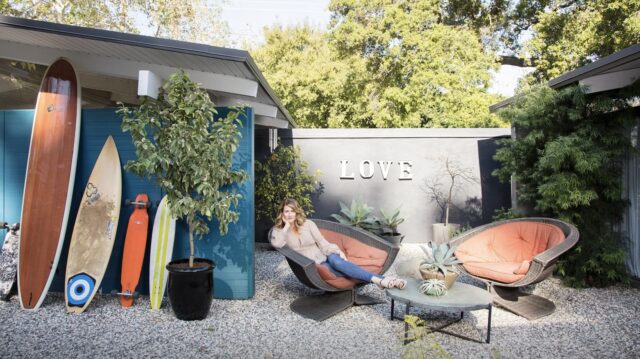
CC: Back to your home, since you were just talking about standing in your kitchen in Brentwood. I noticed that you collect a lot of beautiful things, which is intrinsic to our sense of belonging. Our identities are caught up in the things we collect. What is your favorite thing to collect?
LD: Well, I would say movie memories, so movie memorabilia, things that have been important to my parents, my godmother [Shelley Winters], films I’ve done, a book I received on that film that was such a part of my story. I have a lot of those objects, things that matter to me. Although one of my best girlfriends in the world happens to be the amazing Courteney Cox, and if she were here she’d be angry if I didn’t say to you that it’s vases. Because every time she comes to my house, and she has such incredible taste, she’s like, “Listen to me when I say to you, you can never buy another bud vase again.”





